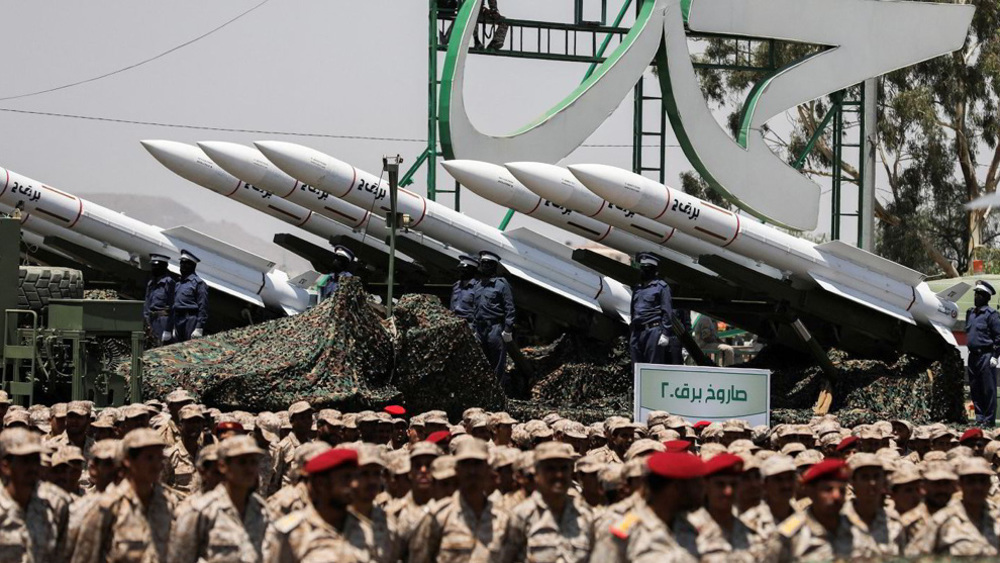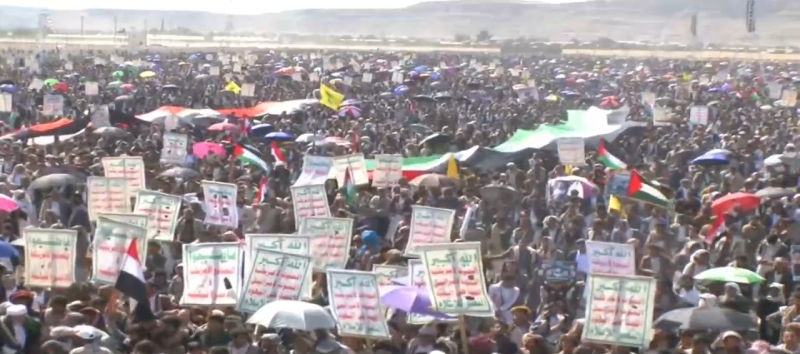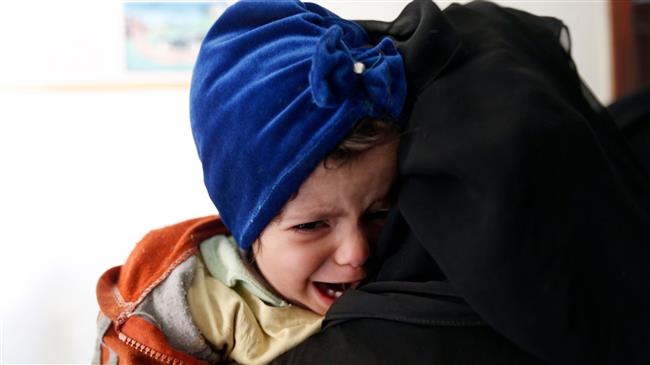Yemeni army, allies shoot down Saudi spy drone over Sa’ada
Yemeni army soldiers, supported by allied fighters from Popular Committees, have managed to shoot down a Saudi unmanned aerial vehicle (UAV) as it was on a reconnaissance mission in Yemen’s northwestern province of Sa’ada.
An unnamed Yemeni military source told Arabic-language al-Masirah television network that the Saudi reconnaissance drone was shot down as it was flying in the skies over al-Buqa district on Sunday evening.
On December 30 last year, Yemeni troopers and Popular Committees fighters traced and targeted a Saudi reconnaissance drone over Hirz district in the northwestern province of Hajjah.
Yemeni forces, using a surface-to-air missile, shot down a Eurofighter Typhoon fighter jet belonging to the Royal Saudi Air Force on November 27 as it was flying east of the Yemeni capital city of Sana’a.

Earlier that month, the Yemeni army announced that it had managed to shoot down a US-made General Atomics MQ-9 Reaper, a drone operated by the Royal Saudi Air Force.
In June, the Yemeni air defense forces also intercepted and shot down a Saudi F-15 fighter jet in the skies over Sana’a.
At least 13,600 people have been killed since the onset of Saudi Arabia’s military campaign against Yemen in 2015. Much of the country's infrastructure, including hospitals, schools and factories, has been reduced to rubble due to the war.
The Saudi-led war has also triggered a deadly cholera epidemic across Yemen.

According to the World Health Organization’s latest tally, the cholera outbreak has killed 2,167 people since the end of April 2017 and is suspected to have infected 841,906.
In November 2017, the United Nations children’s agency, UNICEF, said more than 11 million children in Yemen were in acute need of aid, stressing that it was estimated that every 10 minutes a child died of a preventable disease there.
Additionally, the UN has described the current level of hunger in Yemen as “unprecedented,” emphasizing that 17 million people were food insecure in the country.
The world body says that 6.8 million, meaning almost one in four people, do not have enough food and rely entirely on external assistance.
Israeli forces kill 7 more Palestinians in West Bank
Israel’s Netanyahu dismisses military affairs minister Gallant
Hezbollah attacks turn Israel’s Haifa into a ghost town
Iran’s FM meets Pakistani PM, discusses bilateral ties, Israeli atrocities
Iran ramps up gasoline output amid rising demand
UK foreign secretary under pressure over denial of genocide in Gaza
VIDEO | Press TV's news headlines
Hezbollah bombards explosives factory in occupied territories


















 This makes it easy to access the Press TV website
This makes it easy to access the Press TV website